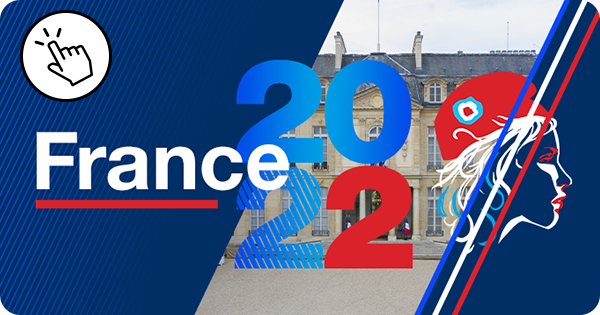French far-right leader Marine Le Pen on Wednesday backed closer ties between NATO and Russia, adding that if she won the presidency Paris would once again leave the military command of the US-led alliance.

Le Pen, who on April 24 faces President Emmanuel Macron in a run-off, said there should be a "strategic rapprochement" between NATO and Russia once the war launched by Moscow against Ukraine had ended.
"As soon as the Russian-Ukrainian war is over and has been settled by a peace treaty, I will call for the implementation of a strategic rapprochement between NATO and Russia," Le Pen told a news conference packed with international reporters.
Wednesday's press conference just 11 days ahead of the 2022 French presidential runoff was billed as a major foreign policy address for the far-right candidate who has no prior experience in government or international affairs.
A Le Pen victory in the April 24 runoff would reverberate through Europe and across the Atlantic, installing a deep eurosceptic in the Élysée presidential palace and someone who had long professed admiration for Russian President Vladimir Putin.
Changed tack on Putin's Russia
Five years ago, before she faced Macron in the 2017 presidential election runoff which she lost heavily, Putin hosted Le Pen at the Kremlin with open arms.

At the time, she declared admiringly that she shared the same values as Putin and that a "new world order" was emerging with him, then US president Donald Trump and her at the helm.
Le Pen has changed tack on Russia since the war in Ukraine and said she was "independent" of any foreign nation.
The news conference, designed to present Le Pen as a credible figure on the global stage, was briefly interrupted by a protester brandishing a heart-shaped picture of Le Pen and Putin, who was quickly dragged out by security guards.
Le Pen emphasised that better ties with Russia would also prevent Moscow from becoming too close to China, noting that she was echoing an argument made by Macron in the past.
"This is in the interest of France and Europe but also I think the United States ... which has no interest in seeing a close Sino-Russian relationship emerging," Le Pen said.
She also reaffirmed her intention to repeat France's 1966 move of leaving NATO's integrated military command, while still adhering to its key Article 5 on mutual protection.
"I would place our troops neither under an integrated NATO command nor under a future European command," she said, adding that she refused "subjection" to Washington.
"I would place our troops neither under an integrated NATO command nor under a future European command," she said, adding that she refused any "subjection to an American protectorate".
End of Franco-German joint military programmes
Le Pen also said she wanted to keep a close relationship with Germany, but warned that there were strategic differences between the two, which would mean putting an end to a series of Franco-German joint military programmes.
She was particularly critical of the close bilateral ties engendered by her political rival and Germany's former chancellor, Angela Merkel.
"I would continue ... reconciliation without following the Macron-Merkel model of French blindness towards Berlin," she said, referring to the former German.
British 'got rid' of 'Brussels bureaucracy'
On Europe, Le Pen made clear that any "Frexit" along the lines of Britain's exit from the EU was not on her agenda.
But she argued that French predictions that Brexit would prove "a cataclysm for the English" had not come true.
"The British got rid of the Brussels bureaucracy, which they could never bear, to move to an ambitious project of global Britain," she said.
But she added: "This is not our project. We want to reform the EU from the inside."
The 2022 campaign trail has seen Le Pen dropping her past unpopular proposals to ditch the euro or leave the EU.
"Nobody is against Europe," she said. "I would not stop paying France's contribution to the EU, I want to diminish it."
(FRANCE 24 with AFP and REUTERS)







